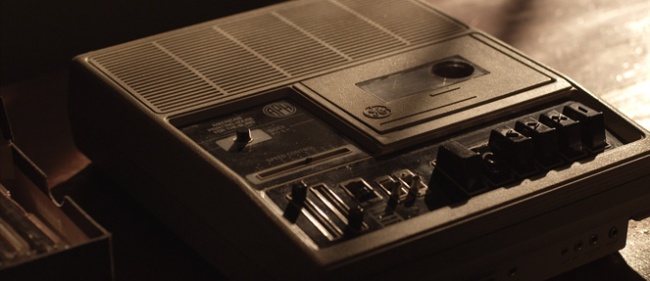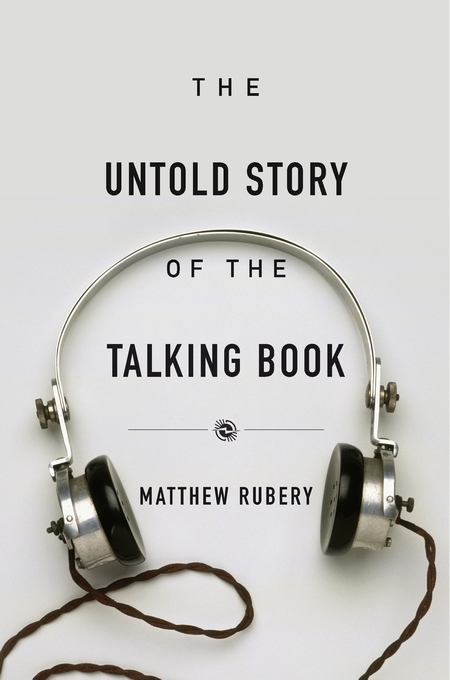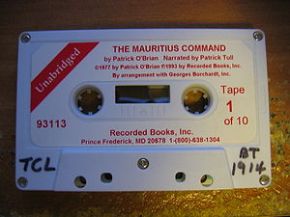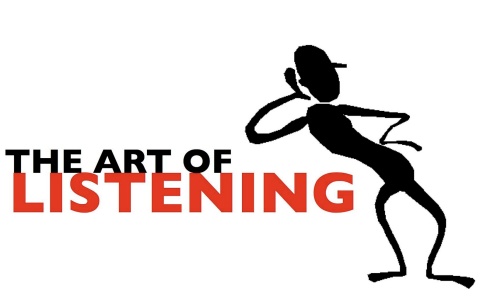
John Hull lost his sight in his 40s. His memoir, Touching the Rock: An Experience of Blindness (1990), vividly describes how it feels to lose one’s sight after a lifetime of visual experiences. Oliver Sacks praised its account of how the “inner eye” gradually vanishes with blindness.
While writing a history of talking books, I have spoken with many people who are blind about the differences between reading books with their eyes, ears, and fingers. As Emeritus Professor of Religious Education at the University of Birmingham and the author of several books, Hull stands out among this group as exceptionally articulate when it comes to speaking about his life. I have long wanted to discuss with him passages from Touching the Rock in which he recalls listening to books on cassette tapes. There he notes: “Reading a book has become like listening to a lecture.”
Recently, the London Interdisciplinary Discussion Group held a seminar on “Blindness” at the Science Museum, where John Hull, neuroscientist Colin Blakemore, philosopher Ophelia Deroy, and filmmakers James Spinney and Peter Middleton were invited to address the question: “How can the non-blind understand blindness?” (You can watch Spinney and Middleton’s short film “Notes on Blindness” here: http://intodarkness.co.uk/notes-on-blindness/) Poor health prevented Hull from attending, but I wrote to him after the event. Here are his responses to my questions about what it’s like to go from reading books with your eyes to reading them with your ears:
Matthew Rubery [MR]: In Touching the Rock, you wrote that “Nobody loves cassettes the way people love books.” How has your relationship to books changed since losing your sight?
John Hull [JH]: I suffered acutely from bereavement at the loss of the book. Indeed, I sometimes told people that the greatest losses were the human face and the printed page. The feeling of loss has lessened over the years but I still sometimes feel it. When I go into a library, I am sometimes grasped by a regret that I cannot freely browse. It is like the feeling that you cannot just go walking in the hills. How wonderful it would be to be free again, just to wander along the aisles of shelves and select at random anything that struck my curiosity! But these feelings are momentary and passing. They are quickly overtaken by a feeling of gratitude that although the printed book has gone, the contents of them remain. I still love the smell and feel of the book. I like to get my hands on a book, to know immediately how big it is, if it is a quality product, how the pages feel under my fingers.
[MR]: Do you consider listening to books to be the same thing as reading books? If not, in what ways are they different?
[JH]: This question reveals a misunderstanding about reading. Reading is an intellectual action of the understanding, of the mind. Information comes to the brain by means of various senses – the eyes, fingertips or ears. Whilst it would not be true to say that the means of access makes no difference, the act of reading is the same. One absorbs the thoughts and meanings. So I do not regard myself as listening to a spoken book any more than a sighted person thinks that he or she is looking at a book. Looking, feeling and hearing are the means of access; reading is of the mind.
I would now make a further distinction: there is a difference between reading and being read to. This depends partly on the social situation and partly on the content. When Marilyn reads a P.G. Wodehouse book to the family on holiday, I am being read to. When I turn on YouTube to hear a live voice read a poem to me, I am being read to. I am not in control of the reading; I am passive but responding. But when I am reading for myself, I am in control. I am manipulating the speed, repeating at will, stopping and starting when I choose. The type of computer voice makes no difference to me any more than the typeface deters the sighted reader. I read fast, for I am not reading for entertainment or relaxation but for knowledge and understanding. So when I read poetry, jokes and literature on the personal computer (PC), the speed is slow, for I need time to laugh, to enjoy the language, to repeat the sounds in my inner ear.
Having explained this, I now go on to comment on the differences between visual and aural reading. These are very significant. Visual reading is in space; aural reading is in time. Space is solid and unmoving; time is always moving. If a sighted person looks away from the printed page, the page is still there. If an aural reader stops the sound, there is nothing there. With the help of the artefact, a sighted reader has a sense of progress through the volume; an aural reader has no sense of this, since unless you notice the page number and have already found out how many pages the book has, you do not know how far through the book you are. Instead you have a sense of accumulated understanding of the argument. A visual reader may retain a visual memory of the page, and of the place on the page where a mark was entered into the margin; an aural reader retains a memory of the heard expression, and can locate it again via the search facility.
[MR]: How would you describe your relationship to the book’s narrator? Does the narrator’s presence enhance or interfere with the reading process?
[JH]: You seem to be assuming a human reader. I used to use human readers before the PC technology came along. The computer is so superior to the human narrator and is much to be preferred. Humans arrive late, have horrible colds, want to go to the loo, demand cups of coffee and get hoarse. The computer does not breathe. When I started to read on the PC, I at last found something that could outlast my own powers of concentration! People often ask me if the PC voice irritates me. No, it is not relevant. It is not the sound of the voice that I am listening to but the meaning of the language. Human narrators find it difficult to hide their own emotions when they are reading; the PC has no emotion, only a syntactical inflexion to mark the grammar. The computer is never surprised, baffled, apologetic or embarrassed. The impersonality of the PC is its strength.
[MR]: Do you ever listen to books that you read before losing your sight? How would you compare them?
[JH]: Yes, sometimes I read books on the PC that I remember from sighted days. The Bible is a case in point. But such web sites as Bible Gateway have surpassed the printed book and I do not miss the latter. Of course, when scripture is read in public worship, I am being read to, a different kind of experience.
[MR]: Are there any books that you think are better heard than read?
[JH]: Well, poetry is generally better when read aloud, just as music is better alive than read on the printed score. In general, I regard speed reading on the computer as being superior to visual reading. The eyes get tired, people suffer from eye strain. But there are no muscles in the ears and you do not suffer from ear strain. I can walk up and down with a cup of tea while my narrator churns it out at 400 words a minute, and I can keep it up for hours. Perhaps the sighted reader is quicker but I am not sure.
[MR]: Has listening to books influenced the type of books you enjoy?
[JH]: It has changed my reading for pleasure, for new novels are usually not online. I tend to read the classics, all of which are on the Gutenberg Project and similar sources. My serious reading has not changed since it is determined by the subject matter. I get digital books from publishers, and if not available, I just scan the whole book into the computer, using Optic Book scanner with ABBYY fine reader as the OCR and Jaws as the screen reader.
[MR]: Is there anything else you’d like to say about talking books?
[JH]: The main aspect you seem to have omitted is the mental adjustment necessary in the move from visual to aural reading. It takes the brain a long time to get used to the new method and this learning experience is very vivid. Gradually, my brain has become tactile and aural.
[These remarks are reprinted here with the permission of John M. Hull. The interview took place via email on May 12, 2014. Copyright © Matthew Rubery 2014.]





